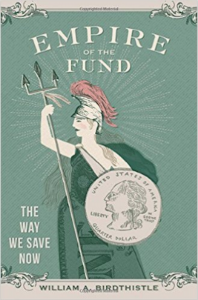The following post is by ESI from ESI Money, a blog about achieving financial independence through earning, saving, and investing (ESI). Itís written by an early 50ís retiree who achieved financial independence, shares whatís worked for him, and details how others can implement those successes in their lives. He is also the author of a free ebook titled Three Steps to Financial Independence.
 Early retirement is all the rage these days in personal finance circles.
Early retirement is all the rage these days in personal finance circles.
And when I say “early”, I mean really early.
I retired at 52 and today’s crowd makes me feel like a slacker. People are retiring in their 30’s and 40’s these days with a handful even in their 20’s.
Of course the definition of “retire” is rather broad. Many still bring in income through side hustles or part-time work. But the common thread is that they are retired from full-time work.
If you would ever like to retire — and especially if you’d like to retire early — there are some landmines you need to avoid along the way.
Here’s my list of the top five killers of early retirement (and maybe retirement overall). I’ll also include some tips on what to do if you’re facing any of these challenges.
1. Having too much debt.
Debt is a killer in many ways.
First of all, interest costs add up, thus keeping you from saving enough to retire. Even with today’s low rates homeowners with 30-year mortgages are going to pay tens of thousands of dollars in interest.
And that’s if they actually pay off the house in 30 years. Many Americans have revolving mortgages due to moving, taking cash out of their home, and so forth that leaves them with one mortgage or another for well beyond three decades.
Second, debt’s mere presence will make it harder to reach a retirement number. For instance, if you have no or limited debt, the amount of income you’ll need to retire is going to be much lower (and thus easier to reach) than if you’re saddled with a ton of debt.
We got serious about our debt early in our marriage and paid off everything, including our house, within ten years. We then had 20+ years of hyper-savings to build up assets which allowed us to reach financial independence in our 40’s and eventually retire in our early 50’s.





 A generation ago, large numbers of Americans enjoyed the support of pensions offered by their employers. Pensions, of course, guarantee their beneficiaries a steady stream of payments from their retirement until their death. Together with the benefits of Social Security, pensions provided secure retirements to millions of working Americans. The golden age of the pension, however, is effectively over. And it may never have been all that gilded, as not once in the past thirty-five years did more than 40% of American workers ever participate in such a plan.
A generation ago, large numbers of Americans enjoyed the support of pensions offered by their employers. Pensions, of course, guarantee their beneficiaries a steady stream of payments from their retirement until their death. Together with the benefits of Social Security, pensions provided secure retirements to millions of working Americans. The golden age of the pension, however, is effectively over. And it may never have been all that gilded, as not once in the past thirty-five years did more than 40% of American workers ever participate in such a plan.